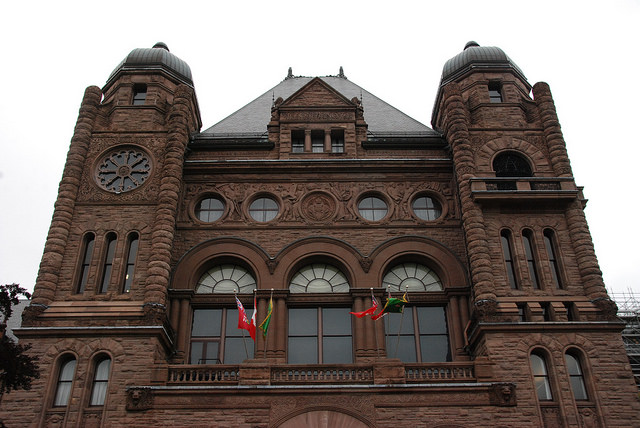During the recent “grassroots party process” Ontario PC party members clearly showed that carbon pricing isn’t a political issue — it’s a policy that different parties approach in different ways — but the fundamentals of putting a price on carbon pollution is for all. The party members overwhelmingly supported a revenue neutral carbon tax, with 87.5 per cent of voters supporting a tax at the federally mandated schedule that returns all revenues to taxpayers. This has been reflected in the Ontario PC party platform released earlier this week.
The path forward should build on the considerable achievements already made in the province with a keen eye to the impacts of change. Ontario has a cap-and-trade system in place, one with the support of industry, and that serves as a keystone of the emerging North American carbon pricing market. The cost — in terms of both dollars and emissions — of any changes to that system must be considered. Aside from direct costs of redesigning the system, market confidence is high around the current system, and backing away now would cause uncertainty to investors, as the treatment for EITE industries would fluctuate. As the current system is linked with California and Quebec, the change also risks destruction of the growing North American carbon market, which has implications beyond the provincial boundary. Ontario’s exit from the market would threaten the strong international coalition that addresses the global nature of the emissions reduction challenge.
The vote by party members shows a recognition of what so many experts — on both sides of the political spectrum — have been saying: well-designed carbon pricing provides a predictable, long-term signal to businesses, protects competitiveness, drives efficiency and innovation and spurs job creation. It also provides revenue that can be used for a variety of purposes, including reducing other taxes. That’s why so many businesses support a price on carbon. Many prominent conservatives have also supported pricing carbon pollution including Gregory Mankiw (George W. Bush’s senior economic advisor), the conservative government in Manitoba, and notable Canadian conservative Preston Manning.
Not only does it make good economic sense domestically, putting a price on carbon is the way the rest of the world is moving. Around 40 of Canada’s most important trading partners and more than 20 cities, states and provinces already use carbon pricing mechanisms, including China, California, Germany and Mexico. Carbon pricing is also a crucial component of any climate action plan, something that more and more voters are starting to demand with 70 per cent of Canadians believing governments should do more to reduce emissions and the majority of Canada’s population already covered by a price on carbon. It is encouraging to see that carbon pricing in Canada has broad political support.









